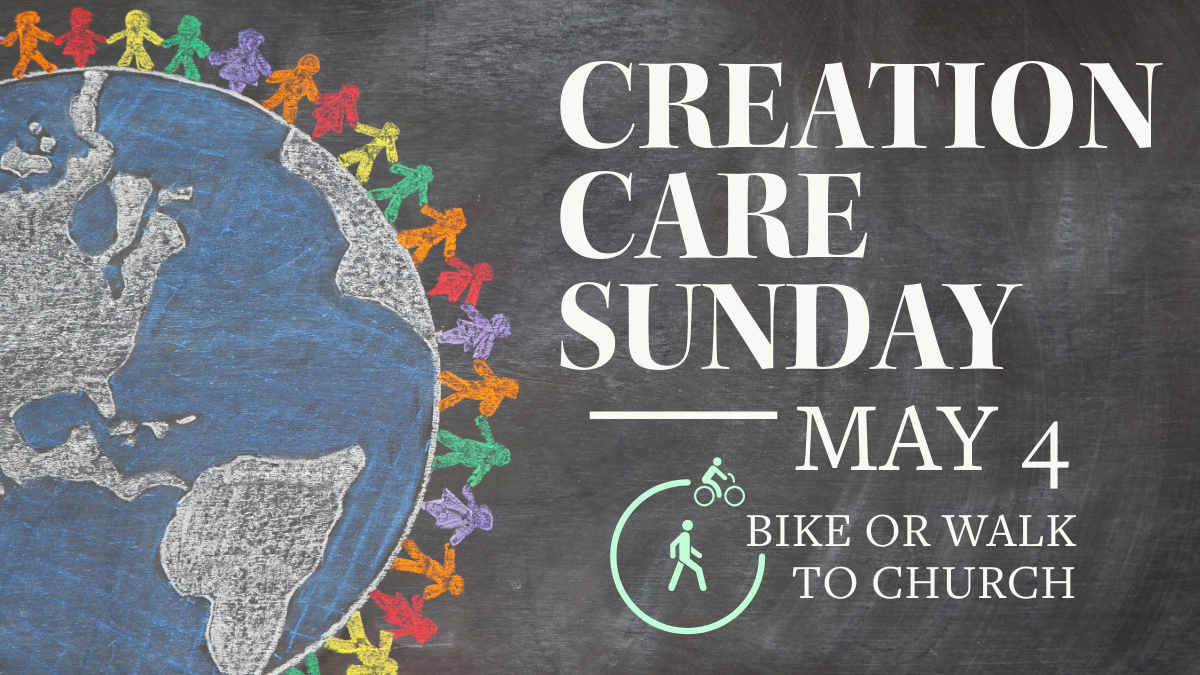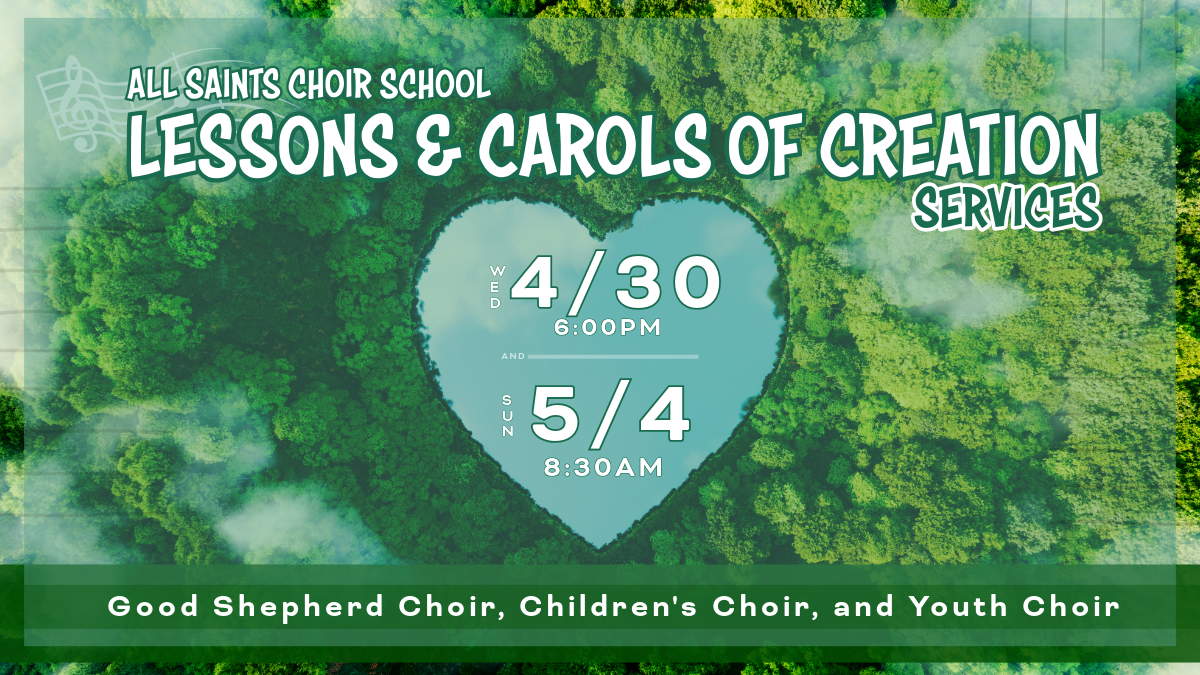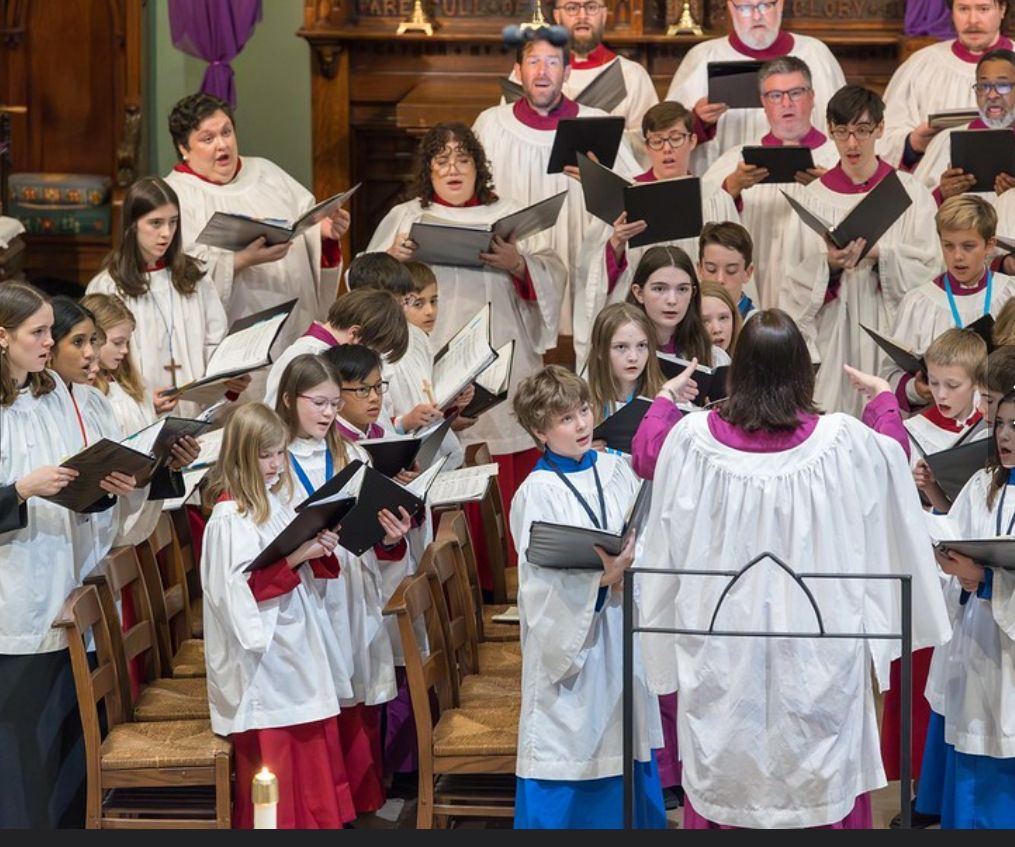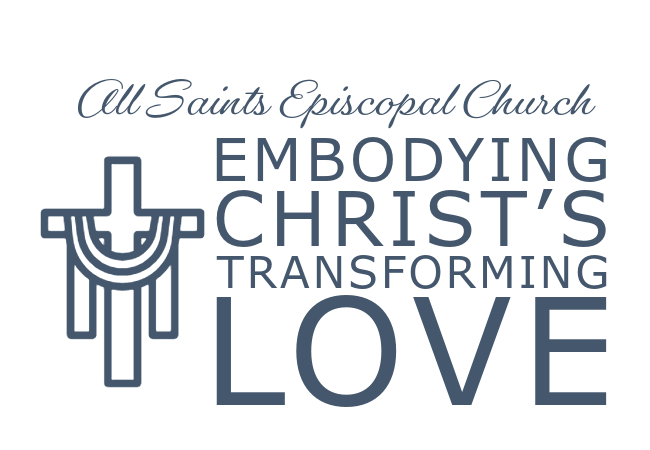Words
The Rev. Charles Youngson
June 5, 2022 The Feast of Pentecost, Year C
Acts 2:1-21
“Words”
There’s a famous quote attributed to “Ma” Ferguson, the first female governor of Texas, though who knows if she actually said these words. The year was 1925, and as the story goes, she was arguing against legislation requiring high school students to learn a foreign language before graduating. Her closing argument was, “If English was good enough for Jesus Christ, then it’s good enough for the children of Texas!”
The equivalent of this attitude in the Church are the so-called “King James Only” churches that insist that version of the Bible is the only one that is divinely inspired. We Anglicans can’t poke too much fun. The KJV is a proud part of our heritage along with the Book of Common Prayer. They were both meant to unify the English church and nation during a time of religious turmoil between those who wanted to remain loyal to the pope in Rome and to Roman Catholic worship and those who wanted to see England embrace the changes brought about by the Protestant Reformation. The queen’s solution became known as the Elizabethan Settlement. And one of the primary components of that settlement was the Act of Uniformity of 1558. Under this law, all of England was required to attend church. And everyone was required to worship using the same words from the same Book of Common Prayer. Though they might believe different doctrines, the words would be the same. That compromise continues to shape the way we worship today. We may not always agree on what the words mean, but the words of our worship continue to be a source of unity for Episcopalians and Anglicans around the world.
And it takes a lot of words to worship God in the Episcopal Church. We are wordy people. By my rough estimate the service this morning will include at least 7500 words between the prayers, Bible readings, hymns, and the sermon.
But of course, as much as words have the power to bring us together, they can just as easily separate us. From the beginning Christians have fought over getting the words right, sometimes violently. So maybe words in and of themselves aren’t the best path to Christian unity.
And it’s not just among Christians. Communication among humans has been difficult since the Tower of Babel. That’s the story in the Book of Genesis that seeks to explain how the various languages came into being. The first verse in the passage we read this morning states, “Now the whole earth had one language and the same words.” The people get the idea that if they build a city with a tower in the heavens, that will prevent them from being “scattered abroad upon the face of the whole earth.” It’s a strange story because it makes it seem that God meddles in human affairs just to make life more difficult. But I think deep down it’s about the way that human arrogance separates us from each other and God. Maybe God saw that a diversity of languages is a good thing. Maybe God saw that when we don’t listen to diverse voices, we run the risk of thinking we can build a “tower to heaven.” And so maybe God confuses the languages not so much as a punishment, but because God delights in diversity and doesn’t want us to put too much stock in words.
After all, words are simply tools for communicating ideas. They are powerful, but it’s so easy to misunderstand each other even we understand the meaning of the words being said. Written communication is even more prone to this problem because it is lacks both tone of voice and body language. And now we live in the age of texts and tweets, which by nature are meant to be short and succinct.
I recently learned that only old-timers like me use correct grammar and punctuation when texting. A friend of mine told me the other day that when she used a period in a text to her college-aged daughter, her daughter asked, “Mom, why are you mad at me?” It just shows that communication can be difficult even within the closest of human relationships. And yet we know that good communication is essential to good relationships. I guess you could say that at some level we all speak different languages. That’s why communication is so hard. And if communication is hard, then relationships are hard. And if relationships are hard, then a loving community of relationships seems downright impossible. Still, that’s what the church aims to be, a loving community. Jesus calls us to be a loving community that values unity within diversity. And that is no easy task. Because if we’re honest we must admit we’re all more comfortable being around people who look, talk, think, and act like us. We feel safer and more comfortable within the confines of our own language and culture. We feel a sense of belonging and security. If you’ve ever traveled to a foreign country and tried to speak the language you know just how mentally tiring it is. And you know how good it feels to come home to familiar American customs. Overcoming language and cultural barriers takes effort. But it’s worth it. Can you imagine how boring American cuisine would be if you could never have pasta, tacos, or sushi? What if we were still eating the same food Elizabeth I ate? I don’t know what that was, but I imagine is was pretty bland. We all appreciate some balance between what is familiar and what is new and different.
Just from a cursory reading of Scripture, it’s pretty clear God delights in diversity. We see this in the way Jesus crossed boundaries to care for Samaritans, Gentiles, women, and people suffering from poverty, disease, and possession. And we definitely see this in the miracle of Pentecost, which we celebrate today.
Jews from around the world had gathered for this major festival in Jerusalem, celebrating the wheat harvest. The disciples of Jesus were there as well. It had been 50 days since Jesus had risen from the dead. That’s when the Holy Spirit descends upon them. They begin speaking in foreign languages. People overhearing think they are drunk. This leads Peter to offer one of my favorite lines in Scripture, “Indeed, these are not drunk, as you suppose, for it is only nine o'clock in the morning.” Clearly, he had never been to an SEC football game.
It wasn’t that the Spirit came into being that day. But the Spirit empowered them in a new way to proclaim a message of Good News for all people. The crowd was able to understand the message in their own languages. I think that’s the key to understanding the miracle of Pentecost. The people didn’t suddenly start understanding Aramaic or Greek or whatever language the disciples usually spoke. Instead, the disciples gained the ability to speak the various languages of the people gathered in Jerusalem that day.
I think there is a powerful teaching for today’s church in realizing this. Our typical approach is y’all come. Come learn our language of Elizabethan prayers and 19th century hymns. Come learn when to read from which book and when to bow, stand, kneel, or sit. Come learn what a narthex, sacristy, and chasuble are. Don’t get me wrong I love our tradition. I love our words. We have the best words. But I also want to make sure our words don’t get in the way of the Spirit’s work of creating the church.
We call Pentecost the birthday of the church because it’s the day the Spirit empowered this ragtag group Galilean fisherman to overcome the limits of their own culture and language so they could reach out in love to people from very different backgrounds. And the Spirit enables us to do the same, to overcome our fear, to move out from what’s comfortable and familiar so that the transforming love of Christ may be known by all people.
That’s the kind of radical hospitality the Gospel invites us to offer the world. God sends us forth to speak the language of the people we are meeting on the way. We are the ones who are challenged to leave our comfort zone to share and receive Good News from others. It’s not their job to come learn our language. It’s our job to learn theirs. Though this is a challenge, the Spirit makes it possible.
The work of the Spirit is to unite all people in love. The Spirit doesn’t accomplish this by erasing our differences. That would be offensive to a God who created 8.7 million species of plants and animals on this rock in the middle of space. Instead, the Spirit unites us across difference, enabling us to value one another in all of our quirky uniqueness.
If our primary motivation is fear, we will insulate ourselves into smaller and smaller enclaves of sameness. But if we are motivated by love, we can overcome the obstacles that separate us from each other and from God. Without the Holy Spirit, relationships are hard, community is harder, and the Church is impossible. But with the Holy Spirit, God’s impossible dream of a world of unity within diversity moves beyond the words on the pages of an ancient book and into present reality.
The Holy Spirit empowers us to be in relationship, to be in community, to be the Church. Church history teaches us that we will never find unity in words. We will find unity in the Word made flesh.
More Announcements







